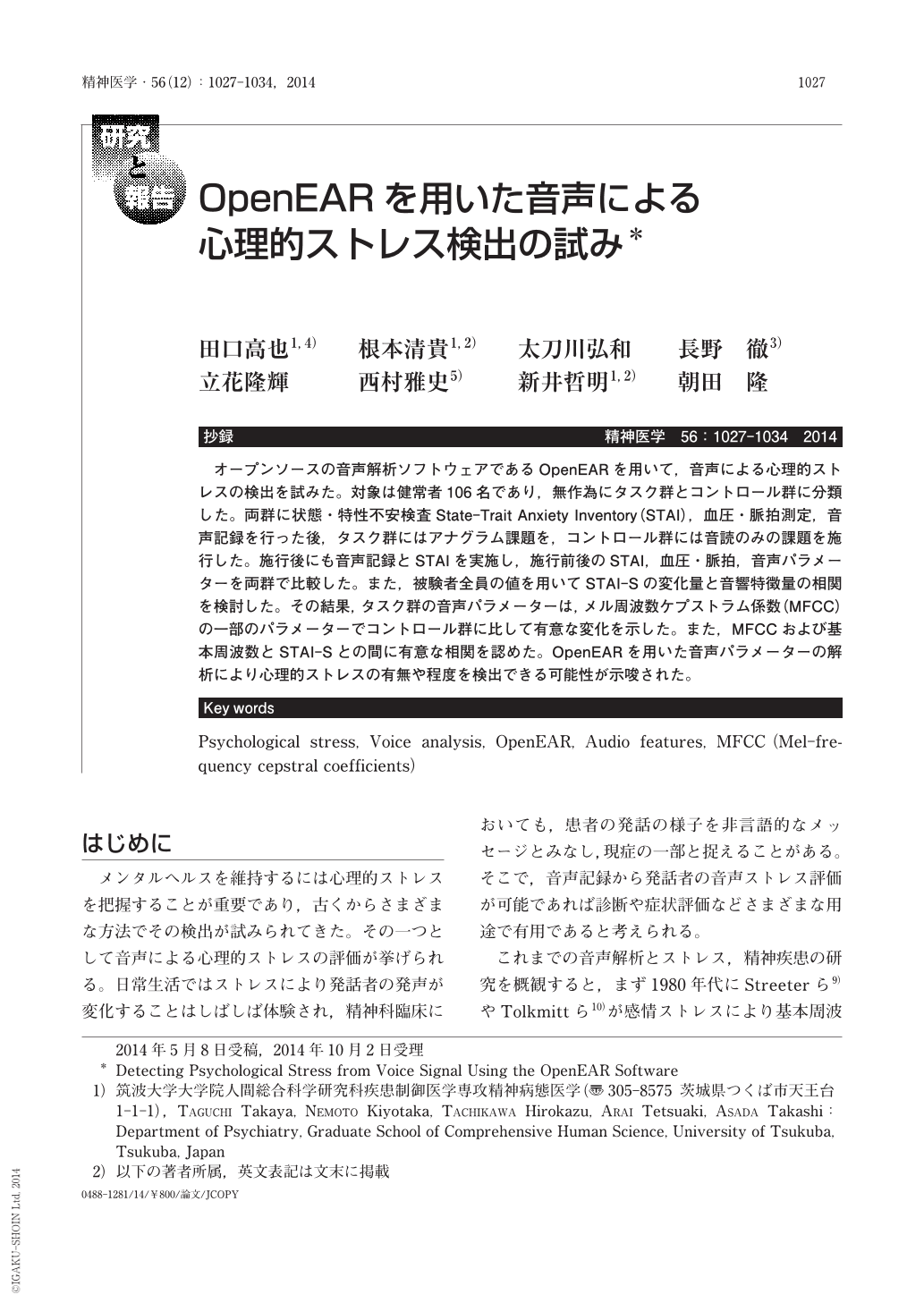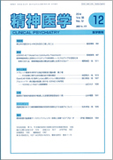Japanese
English
- 有料閲覧
- Abstract 文献概要
- 1ページ目 Look Inside
- 参考文献 Reference
抄録
オープンソースの音声解析ソフトウェアであるOpenEARを用いて,音声による心理的ストレスの検出を試みた。対象は健常者106名であり,無作為にタスク群とコントロール群に分類した。両群に状態・特性不安検査State-Trait Anxiety Inventory(STAI),血圧・脈拍測定,音声記録を行った後,タスク群にはアナグラム課題を,コントロール群には音読のみの課題を施行した。施行後にも音声記録とSTAIを実施し,施行前後のSTAI,血圧・脈拍,音声パラメーターを両群で比較した。また,被験者全員の値を用いてSTAI-Sの変化量と音響特徴量の相関を検討した。その結果,タスク群の音声パラメーターは,メル周波数ケプストラム係数(MFCC)の一部のパラメーターでコントロール群に比して有意な変化を示した。また,MFCCおよび基本周波数とSTAI-Sとの間に有意な相関を認めた。OpenEARを用いた音声パラメーターの解析により心理的ストレスの有無や程度を検出できる可能性が示唆された。
In this study, we tried to detect psychological stress from voice samples using the OpenEAR software. One-hundred and six healthy subjects were randomly assigned to the control and the task group. First, State-Trait Anxiety Inventory (STAI), blood pressure, and pulse were measured and voices were also recorded for both groups. Then, the task group went through anagram task while the control group just read aloud the task phrases. Following the task, voices were recorded again. Voices as well as other parameters were compared between the two groups. We also investigated the correlation between audio features and difference value of STAI-S. As a result, we found that a part of Mel-frequency cepstral coefficients parameters showed significant change between control and task group, and pitch frequency as well as showed significant correlation with difference value of STAI-S. These results suggest that audio features extracted by OpenEAR might be indicators to detect psychological stress.

Copyright © 2014, Igaku-Shoin Ltd. All rights reserved.


